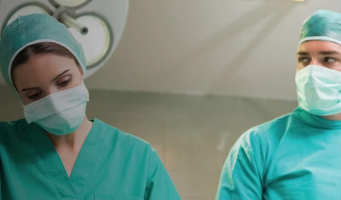Anaesthesia Fundamentals | Anatomy | Trachea, Main Bronchi, Broncho-Pulmonary Segments



Trachea, Main Bronchi, Broncho-Pulmonary Segments
Session Overview
Description
This session describes the structure, relations, blood and nerve supply of the trachea, carina, main bronchi and major bronchopulmonary segments.
Learning Objectives
By the end of this session you will be able to:
- Describe the anatomy of the tracheobronchial tree
- Identify the structure, surface markings and relations of the trachea, carina and main bronchi
- Differentiate the major divisions of the tracheobronchial tree
- Identify the different bronchopulmonary segments
Prerequisites
Before commencing this session you should:
- Module 7a/Anatomy/Mouth, nose, pharynx
- Module 7a/Anatomy/Microstructure of the lungs and pleura
- Module 7a/Anatomy/Larynx, structure, innervation and blood supply
- Module 7a/Anatomy/Mediastinum and contents
In clinical practice you will be required to maintain a patent airway in all patients. This allows unobstructed alveolar ventilation.
This session aims to improve your knowledge of the anatomy of the tracheobronchial tree. It will allow you to understand where single and double lumen tubes are placed in the airway.
This session will also provide you with a knowledge of anatomical structures in close proximity to the lower airway. This will help you to work out how disease processes may affect the airway.
This session will also include some questions to test your knowledge.
- Your Patient's Journey course for Practice Nurses
- Posted By eIntegrity Healthcare e-Learning
- Posted Date: 2025-02-04
- Location:Online
- This session will assist primary care practitioners to help patients with mental health problems nav...
- Specific Mental Health Conditions course for Pract...
- Posted By eIntegrity Healthcare e-Learning
- Posted Date: 2025-02-04
- Location:Online
- This session gives a brief overview of some, but by no means all, mental health conditions that prac...
- Care Planning course for Practice Nurses
- Posted By eIntegrity Healthcare e-Learning
- Posted Date: 2025-02-04
- Location:Online
- People with long-term conditions should have a plan of care to help them self-manage their condition...
- Medication for Mental Health Problems in Primary C...
- Posted By eIntegrity Healthcare e-Learning
- Posted Date: 2025-02-04
- Location:Online
- This is Part 2 of two sessions which cover the medications prescribed for most mental health conditi...
- Medication for Mental Health Problems in Primary C...
- Posted By eIntegrity Healthcare e-Learning
- Posted Date: 2025-02-04
- Location:Online
- This is Part 1 of two sessions which cover the medications prescribed for most mental health conditi...


